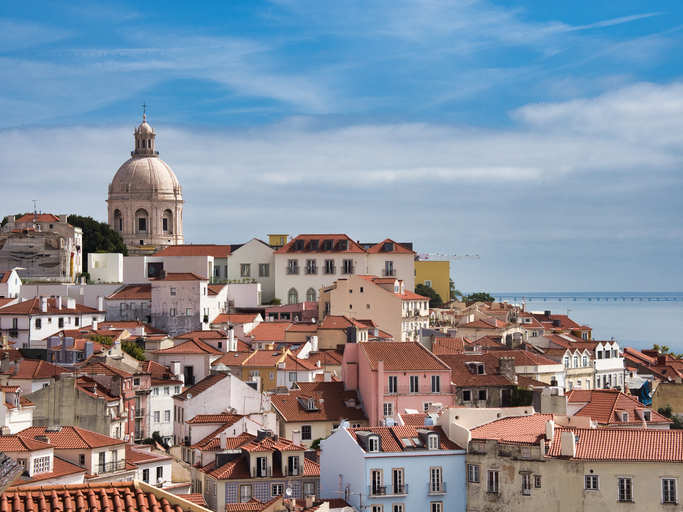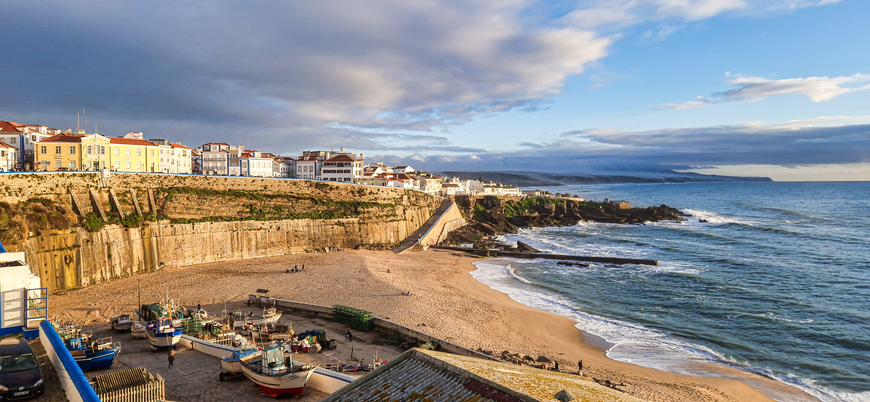How Lisbon’s Food Scene Serves Diaspora On A Plate
From The Motherland To The Mediterranean: Lisbon’s Food Scene Is A Love Affair With The African Diaspora
Food is where the heart is, not just because it's delicious, but it can also serve as a gateway to understanding the past, relishing in the present, and inspiring the future.
Share the post
Share this link via
Or copy link

Food is where the heart is, not just because it’s delicious, but it can also serve as a gateway to understanding the past, relishing in the present, and inspiring the future.
For example, in America, soul food has long been a staple in the Black community. Its history, however, stems from a dark time when enslaved Africans had no choice but to use scraps to create dishes like sweet potato pie, pig’s feet, okra, and more. While it is a delicacy enjoyed by many people, the painful past is often undermined or lost in the process.
As a universal language, food has a way of bringing people together, especially now more than ever, thanks to the internet and social media. It is not common for someone in Japan to recreate a dish from someone’s great-grandmother in Mississippi, and vice versa.
RELATED: World Tourism Day: 5 Safe And Inspiring Destinations For Black Women
Love MadameNoire? Get more! Join the MadameNoire Newsletter
We care about your data. See our privacy policy.
Cuisines have no borders. For instance, many dishes and ingredients found in Portugal today are a direct link to how South American and African cultures and traditions influence and shape the world.
Shaped by the colonial history in Africa and Brazil, if you’re a Black person who finds your way to Lisbon, Portugal, some of the flavors may be new, but feel oddly familiar. From the city’s obsession with the sea to its distinct affinity for sweet and spicy recipes, history has played a role in showcasing the diaspora on a plate in the city dubbed Queen of the Sea, thanks to its history as a major seaport.
Here’s how Lisbon’s food scene is a direct reflection of its Afro-Brazilian influences.
The History Of Lisbon

During the 15th century, the Portugese exploration began down the African coast, where colonies like Angola, Cape Verde, and Mozambique were established. Thus, popular foods like Cachupa, Calulu, and Mathapa are a common cuisine throughout the city.
A traditional stew, or country dish, cachupa is hearty meal that originates from the a necessity to use scare resources, like its ingredients of corn, beans, and any other available vegetables like cassava, sweet potatoes, squash and greens. A staple of Cape Verdean cuisine, this dish not only reflects the country’s culture and history, but serves as a symbol of resilience as it dates back to times of famine, where this became an affordable and nutritious way to feed a lot of people at once.
Calulu is another savory dish includes the fish or meat stew stems from Angola. A symbol of Angolan culinary heritage, calulu is a connection to home for people with Angolan backgrounds, and teaches a valuable lesson in the Portuguese colonial influences still prevalent in Lisbon today. Some variations also originate from Brazil.
From Mozambique comes the pumpkin leaf dish of Mathapa, a chicken curry with coconut milk known as caril de galinha, and piri-piri, the spicy chilli sauce used in several dishes throughout the city.
Queen Of The Sea

Lisbon boasts several nicknames, including City of Seven Hills from its geography of being built on seven hills that overlook the Tangus River, City of Light because of its relationship with the sun and the Tagus River, but something that resonated most with us is the fact that it is called Queen of the Sea due to its history of being the center of a vast world empire during the Age of Discovery.
As a gateway to the Atlantic Ocean, Lisbon became wealthy thanks to global trade and exploration with routes specific to Asia, South America, and Africa.
Specifically, the city has assimilated seafood dishes from Brazil, like Moqueca, a seafood stew that is a hallmark of Afro-Brazilian culture. It includes fish, shrimp, and a mix of seafood prepared in a broth with distinctive red dendê, or palm, oil, coconut milk, and vegetables.
Another traditional Portugese foods that have a clear influence from North Africa includes cataplana, which can be cooked using seafood or meats that are cooked with vegetables tucked inside of a clamshell cooking vessel.
Another Afro-Brazilian staple is Acaraje, mostly found in the Bahia state, which is a typ of fritter derived from cowpeas or black eye pes, the beans that come from Nigeria, Togo and Benin.
Places To Explore During Your First (Or Next) Visit

It’s one thing to read about the cuisine in Lisbon that reflects and represents various African communities and culture, but another to be able to taste it for yourself.
We did some digging and found restaurants that represent a lot of the aforementioned cultures, like the Mozambique spot located in the old Alfama square, Rodo Viva, a Cape Verdean-owned eatery called The Fam Kitchen, as well as Dede’s Cafe, providing Jamaican food for any Caribbean people who may be craving a taste of home.
-

She Tried It: Inahsi Naturals Aloe Hibiscus Leave-In Conditioner & Detangler
-

Meet Dominique Fils-Aimé, The Haitian-Canadian Star Redefining Jazz For A New Generation: ‘This is My Vision' [Exclusive]
-

Cooking With Purpose — How Brittney Williams Honors Her Caribbean Roots Through Food
-

Our Health, Our Power: Debunking Myths And Taking Charge This Open Enrollment



